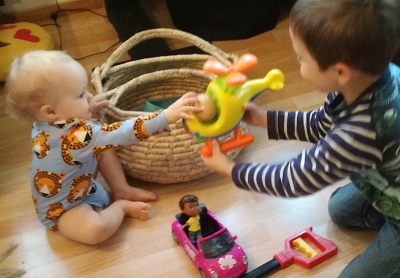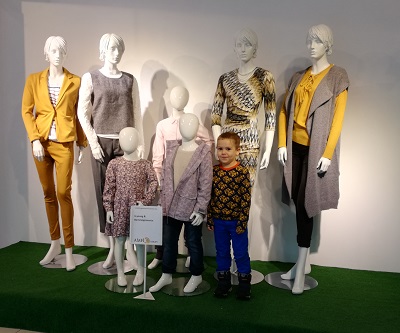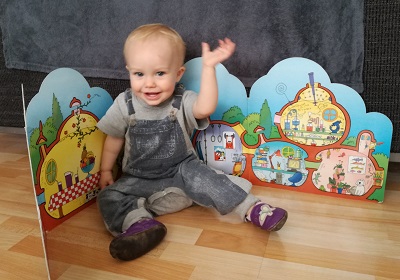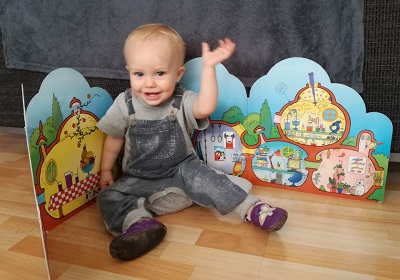-Remember yesterday when we were on the shop?
-Batman are my favorite!
-Today at school we had a try. (a test)
My son’s English is charming. He has creative grammar and makes lots of mistakes. He superimposes English words onto Norwegian grammar, or translates directly to English from Norwegian. My kids are bilingual with Norwegian and English as their mother tongues, but Norwegian has become the dominant language in our house. They hear English from me, when I remember to speak it to them, and when we’re in social situations where switching to English every time we addressed each other wouldn’t be weird or rude, and of course from tv and movies. Other than that they hear Norwegian. They understand English but speak with Norwegian accents and make mistakes here and there. Many a fellow expat has let me know this is all my fault, as I’ve failed at holding the One Parent One Language rule. When raising bilingual children what language you use when you talk to your kids is just one more checkmark on the list of Things You Can and Probably Will Do Wrong.

There are so many rules and expectations about this. I’m not supposed to speak to them in Norwegian because I’ll teach them my bad accent and grammar. And I’m supposed to always speak to them in English (my mother tongue) to give them a full heart language in the language of their mother. (The guilt! My children don’t share a heart language with me, if that’s not a mama failure I don’t know what is.) According to some I’m supposed to go so far as to refuse to answer them if they speak to me in Norwegian, waiting in stoic silence until they say it in English. (Can you imagine this approach with an overtired three-year old? What joy this would add to our family life!) On the other hand I’m supposed to help them in their daily life at the Norwegian school and Norwegian activities with their Norwegian coaches and parent-teacher meetings with their Norwegian teachers, and model normal polite behavior out in society (Norwegian), and have normal social interactions with all the children and adults in our neighborhood and community who are, you guessed it, Norwegian. Plus integrate into the society myself, you know, to be a happy, normal, social-functioning adult which helps me model happy, normal social behavior to them. And I’m supposed to do all this whilst never speaking Norwegian directly to my own children. Does Not Compute.
But I hear this again and again. Expats worried and upset at the fact that their children who grow up here don’t speak English perfectly, or (gasp) have a Norwegian accent when they speak it. I just can’t relate. It doesn’t bother me that my children have Norwegian accents when they speak English. I think it’s fine that Norwegian is essentially their first language. I can’t get worked up about this “problem” because having Norwegian as one’s first language is actually in fact not a problem at all. And one-size-fits-all rules about how we should be interacting annoy me.

Kids, my kids at least, are efficient. Not in the sense that they focus on a task and jump to it when I say they should do something (I wish!), but in the sense that they don’t use brain space to force things which aren’t necessary. When we’re around people who don’t speak Norwegian (family from the US visiting, for example) they suddenly produce English, with varying degrees of charmingness, but as soon as they know everyone around them speaks Norwegian that’s the language they use. But the English is in there, they understand it perfectly, so if in the future we travel more and it’s useful for them to produce English more often, I’m confident it will come. In our daily life though they know I speak Norwegian, and I’m not into forcing them to artificially switch to English every time they turn to me.
And it’s not wrong for me to speak Norwegian to my kids either, even if I have an American accent. Give me a break, kids are smarter than that, my American accent rolls right off the language-processing-duck-feathers in their young flexible brains and they go right on their merry way speaking Norwegian like the rest of the native speakers around them.

Growing up we used to say what a shame it was that our grandparents didn’t hold on to Italian and keep it going in the family, so that we’d be able to speak it too. They were more focused on integrating and becoming American than holding on to Italian culture. Which I now understand better, because even if the circumstances are different here I am doing the same thing again in a new direction. It’s complex, isn’t it? And to be clear, I’m not saying integration should mean giving up one’s native language. Absolutely not. Language diversity and language preservation and keeping minority languages alive are crucial human rights issues. But on the personal, familial level language use shifts and evolves and flows. People move from this side of the globe to that and their language use shifts and changes along with them. For me personally, integrating and interacting with my kids as they grow up here has meant letting go of my language to a certain degree and accepting the fact that for us, in our situation, the societal language has become dominant.
And of course having English as our second language is a special situation, because English is a special language. Exceptionalismly imperialistically media-istically special. My kids, and all Norwegian kids, get lots of exposure to English all the time. It’s all over the place in tv and movies and youtube and it’s a regular subject on the school curriculum starting in first grade. Scandinavians in general are very good at English. So I’m not worried about my kids losing their English skills. It would be a different situation if their “non-dominant mother tongue” was Latvian or Sinhalese. Then I’m sure I’d feel like I needed to make more conscious effort to help them retain knowledge and use of it. Bilingual families come in all shapes and sizes. Some expat families know their stay abroad is temporary so it’s very important for them to keep their kids fluent in the home language they’ll move back to. Other immigrant families (I identify more with the word immigrant than expat, personally) have moved to a new country permanently and language integration is more of a priority to them. Some people learn languages quickly, others slowly. Some families have two immigrant parents, some have one, and the kids’ needs for exposure to the language in the society around them will vary accordingly. In my kids’ case we have one native Norwegian speaker parent and one immigrant English speaker. And they’ve grown up 100% in Norway and we have no plans of moving anywhere else.
What it comes down to is that language is about communication. If I make sounds and my kids understand them, we’re doing great. If the sounds help us create a connection from our thoughts and feelings to the physical world and to each other, then we’re doing even better. Our connection isn’t defined by which language we choose to speak. I don’t know where in the world they’ll end up living one day (except they’ll all be my next-door neighbors, right?), but I know they’ll adapt and use the language that works best for them wherever they are.

Do you have two or more languages in your household? How does that play out for you?

As someone who grew up without any identity, besides American, I’ve always been slightly envious of anyone who is bilingual or who has experienced life in another country. Nobody on either side of my family has any connection to roots outside the United States and I’ve always found it kind of sad.
Sounds like you are an aware, conscious parent raising some pretty sweet little humans, and that is truly a blessing.
LikeLike
Oh my, you cannot imagine how this post resonates with me and how thankful I am for your honesty. I am Spanish living in Norway. My mother is Scottish, my father was Spanish and I grew up in Spain talking English to my mom and Spanish to my dad. I have been living in Norway for about 14 years now, have four kids who barely speak Spanish and everyone makes me feel so guilty because I don’t speak Spanish to my kids 24/7. Our family language is Norwegian, we do homework in Norwegian, have mostly Norwegian friends. We live in a tiny place with absolutely no Spanish people. I talk English to my mother all the time, I do not feel 100% comfortable speaking Spanish to my kids, don’t ask me why cause I don’t know. Maybe because my father died when I was a teen and our home language turned to English, maybe because I never had many friends when I lived in Spain, maybe because I have been living abroad for nearly half of my life and Spanish culture doesn’t completely resonate with me. It is a mystery and it has weighed me down for many years until I learned to let go recently. As you say, my kids do communicate with my mum and sister in some kind of Spanish when they visit us. Of course I feel frustrated that they are not fluid in the language but I cannot let that take away the joy of being with my kids. Thanks again for letting me know I am not alone ❤️
LikeLike